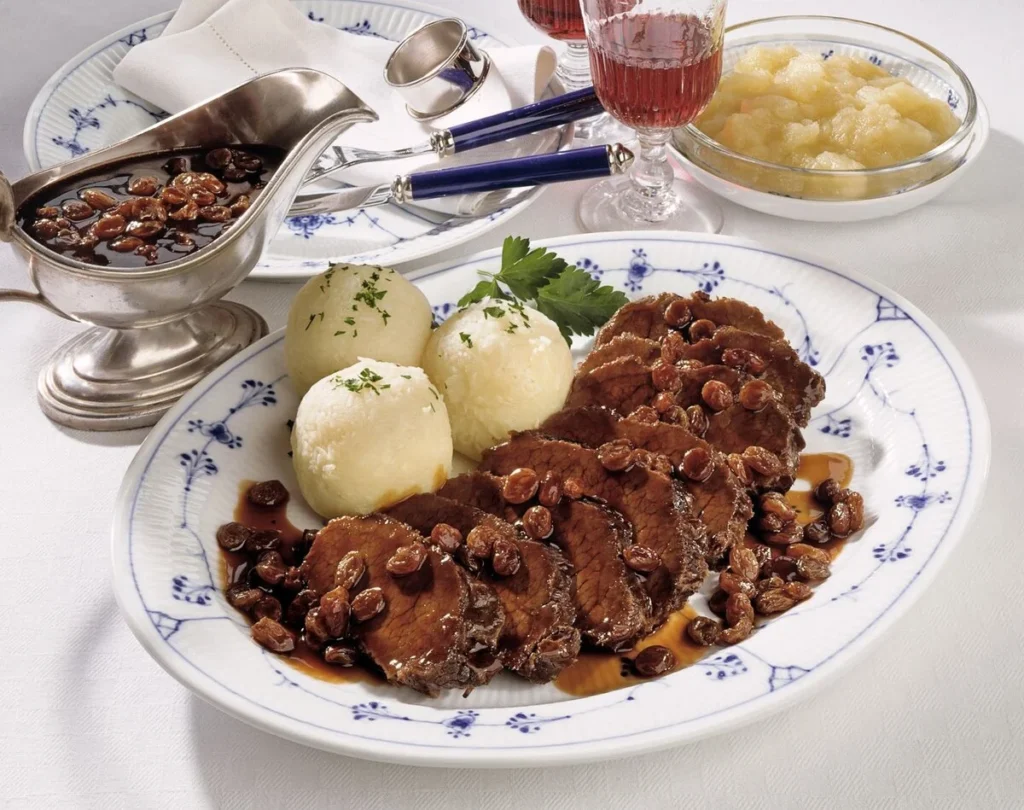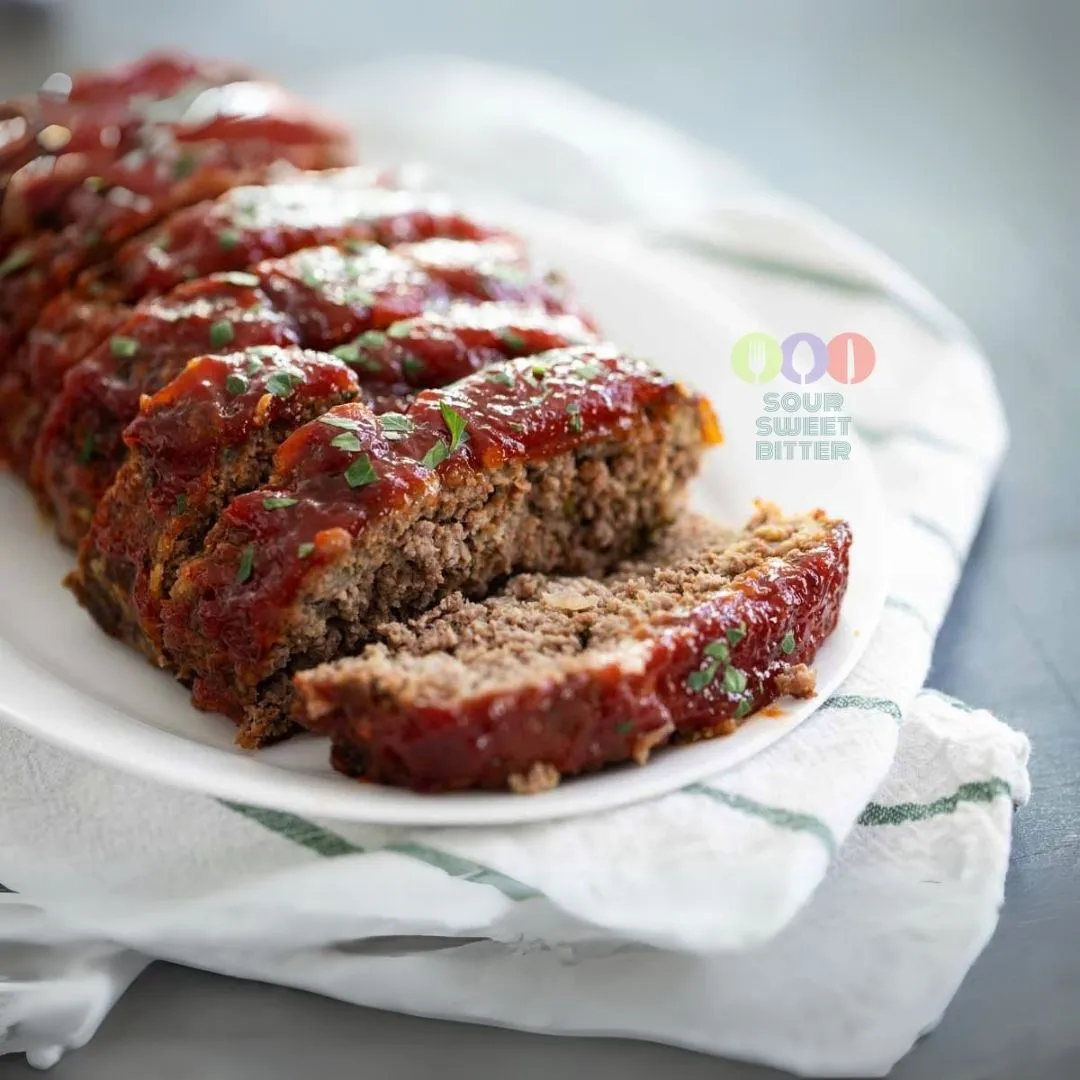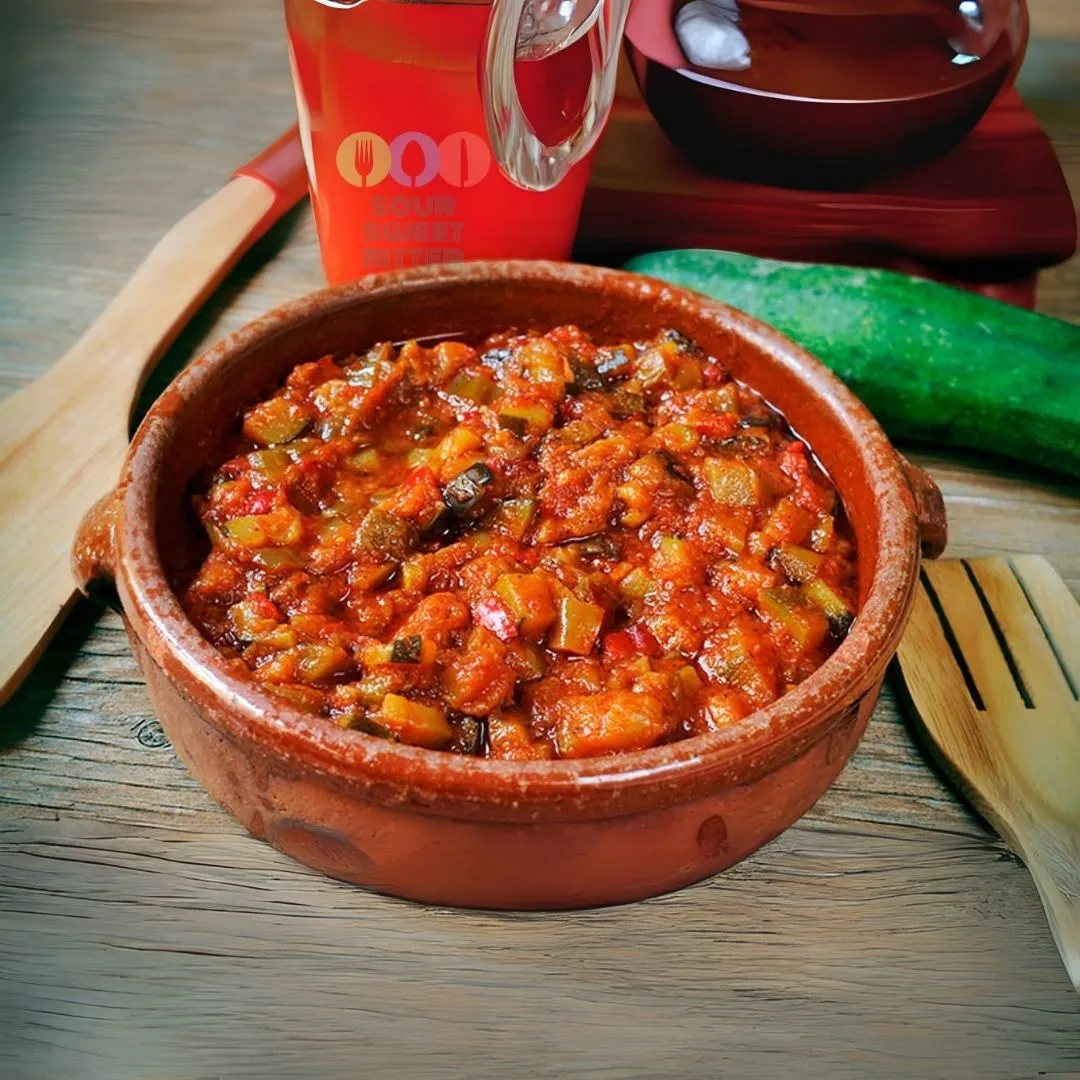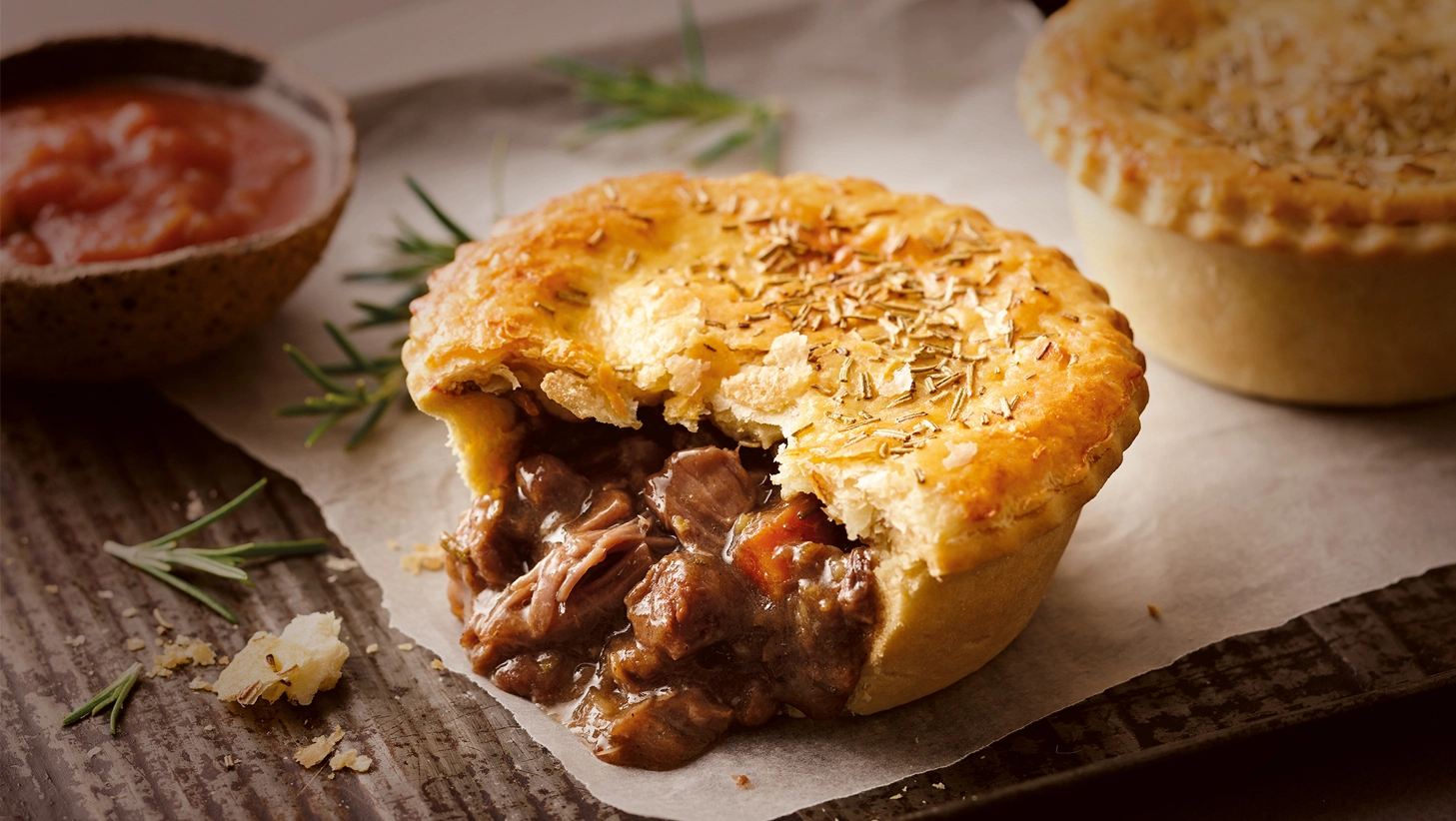Sauerbraten: A Hearty German Classic with Deep Cultural Roots
Sauerbraten is one of the most iconic dishes in German cuisine. Known for its tender, slow-cooked beef and rich flavors, it holds a significant place in the country’s culinary traditions. This beloved meal, often called “German pot roast,” reflects the resourcefulness and patience of traditional cooking in Germany. Beyond its taste, Sauerbraten carries cultural and historical significance.
The Origins of Sauerbraten
The history of Sauerbraten dates back centuries, believed to have originated in the Rhineland. Some trace it to the 9th century during Charlemagne’s reign, when meat was preserved by marinating it in vinegar and spices. This method helped keep the meat fresh while tenderizing it. Over time, this practice evolved into the dish we know today.
Others suggest that Roman influence, possibly brought by Julius Caesar, introduced the technique of marinating meat in vinegar. This historical evolution, regardless of its exact origin, highlights the ingenuity of German cuisine and its ability to adapt through time.
Cultural Significance
Sauerbraten is not just a casual meal—it’s served on special occasions, holidays, and family gatherings. The slow preparation and long marination represent the care and patience that German cooking values.
Each region in Germany has its own variation. In the Rhineland, cooks often add crushed gingerbread to the sauce for a sweet and tangy flavor. Franconian and Swabian regions offer simpler versions, sometimes accompanied by spaetzle or potato dumplings. These regional differences highlight how local ingredients shape the dish.
Sauerbraten Today
Today, Sauerbraten remains popular in both homes and restaurants. Its rich flavors pair well with traditional sides like red cabbage and dumplings. The dish is also a staple at Oktoberfest and other food festivals, giving visitors a taste of authentic German cuisine.
Though the marination process requires time, modern cooks still embrace the depth of flavor it brings. Sauerbraten continues to connect people to Germany’s culinary history and cultural values.
Sauerbraten is more than just a recipe—it represents a deep connection to German culture and history. Whether served at home or during a festive celebration, it continues to embody the hearty, flavorful nature of traditional German meals, while uniting people through shared culinary heritage.
Keywords: Sauerbraten history, traditional German food, German pot roast, cultural German dishes, slow-cooked beef, Sauerbraten variations
Discover Traditional Recipes from Germany Discover Traditional Recipes from Europe You may like this also: Moroccan Rfissa 10 Traditional German Recipes
German Sauerbraten
Ingredients
For the Marinade:
For the Roast:
Instructions
Prepare the Marinade:
-
In a large bowl, combine the red wine vinegar, red wine, water, onions, carrots, bay leaves, cloves, peppercorns, juniper berries (if using), sugar, and salt. Stir until well combined.
Marinate the Beef:
-
Place the beef roast in a non-metallic container or large Ziploc bag. Pour the marinade over the meat, ensuring it is fully covered. Cover and refrigerate for 3-5 days, turning the meat occasionally to ensure even marination.
Cook the Sauerbraten:
-
After marinating, remove the beef from the marinade and pat it dry with paper towels. Strain the marinade, keeping the liquid and the vegetables separate.
-
Heat oil in a large pot or Dutch oven over medium-high heat. Sear the beef on all sides until browned, about 4-5 minutes per side.
-
Add the strained marinade liquid and vegetables to the pot. Bring to a simmer, then reduce the heat to low. Cover and simmer gently for 2.5 to 3 hours, or until the meat is tender.
Make the Sauce:
-
Once the beef is tender, remove it from the pot and set it aside. Strain the cooking liquid, discarding the solids, and return the liquid to the pot.
-
Add the raisins and brown sugar to the pot. Simmer the liquid for 10-15 minutes.
-
To thicken the sauce, whisk together the flour and a little water to form a smooth paste. Stir it into the simmering sauce, continuing to stir until the sauce thickens. You can also add crushed gingerbread or gingersnap cookies for extra flavor and texture.
Serve:
-
Slice the beef and serve it with the sauce poured over the top. Sauerbraten is traditionally served with potato dumplings (Kartoffelklöße) or boiled potatoes and red cabbage.
-
Your traditional Sauerbraten is ready. Guten Appetit!

















